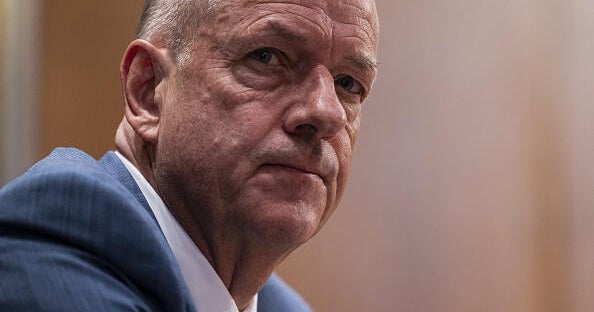UnitedHealth Group is undergoing significant leadership changes as CEO Andrew Witty has announced his resignation for personal reasons. The news comes amid financial challenges for the company, which recently suspended its financial outlook for 2025 due to soaring medical costs. In an immediate move, Stephen Hemsley, who previously served as CEO, has been reinstated to navigate through these tumultuous times.
| Article Subheadings |
|---|
| 1) Details of Witty’s Resignation |
| 2) Hemsley’s Return as CEO |
| 3) Financial Fallout |
| 4) Context of Rising Medical Costs |
| 5) Future Implications for UnitedHealth |
Details of Witty’s Resignation
In a recent announcement, Andrew Witty declared his resignation as CEO of UnitedHealth Group, effective immediately. The decision was attributed to personal reasons, a sentiment echoed in the company’s official statement. Witty has led UnitedHealth Group since February 2021, steering the company through a challenging healthcare landscape marked by the COVID-19 pandemic and rising operational pressures. His leadership has been characterized by a focus on improving health outcomes and addressing systemic issues within the healthcare system. Despite his departure, Witty remains positive about the workforce at UnitedHealth, stating,
“Leading the people of UnitedHealth Group has been a tremendous honor as they work every day to improve the health system.”
Hemsley’s Return as CEO
In an expedited response to Witty’s resignation, the board of directors appointed Stephen Hemsley as the new CEO of UnitedHealth Group, effective immediately. Hemsley is no stranger to the company, having previously served as CEO from 2006 until 2017. Alongside resuming his role as CEO, he continues as chairman of the board. His extensive experience in the healthcare sector is seen as crucial during this transitional phase. Hemsley acknowledges the challenges they face moving forward and expressed his commitment to stakeholders by stating,
“To all stakeholders, including employees and shareholders, I’m deeply disappointed in and apologize for the performance setbacks we have encountered from both external and internal challenges.”
Financial Fallout
UnitedHealth Group’s recent financial performance has raised concerns within the investor community. Following Witty’s resignation, the company suspended its 2025 financial outlook due to unanticipated medical costs affecting many Medicare Advantage beneficiaries. The announcement marks UnitedHealth’s first quarterly earnings miss in over a decade, leading to a significant drop in share prices. Shares plummeted almost 10%, falling to $341.04, and the company’s market valuation is currently about $343.57 billion as of May 2025. This financial turbulence has compounded worries among investors, especially given the backdrop of previous leadership turmoil.
Context of Rising Medical Costs
The causes of the medical cost increases have been debated widely among analysts and healthcare experts. During a recent conference call, Hemsley underscored that the surge in healthcare expenditure was “far above the planned 2025 increase.” This situation has prompted public outcry, as many Americans face rising out-of-pocket costs, inconsistent insurance coverage, and challenges in accessing timely care. The implications of these findings were underscored following the tragic death of Brian Thompson, the former CEO of UnitedHealthcare, who was killed in December 2024. The incident shone a spotlight on the issues plaguing the national healthcare system, stirring emotions and frustrations among the public.
Future Implications for UnitedHealth
As UnitedHealth navigates through this leadership transition, the future remains uncertain. The return of Hemsley offers the company a chance to stabilize operations and realign its goals, yet the financial challenges are daunting. Analysts suggest that addressing the rising costs and restoring investor confidence will be top priorities for the new leadership. Additionally, Hemsley’s experience will likely be critical as the company seeks to improve its public perception amidst criticism regarding the healthcare system’s failings. According to Witty’s reflections in a New York Times op-ed,
“We know the health system does not work as well as it should, and we understand people’s frustrations with it.”
These sentiments underscore the need for meaningful reform, both internally within UnitedHealth and across the broader healthcare landscape.
| No. | Key Points |
|---|---|
| 1 | CEO Andrew Witty resigns from UnitedHealth Group for personal reasons. |
| 2 | Former CEO Stephen Hemsley is reinstated to lead the company. |
| 3 | UnitedHealth suspends its financial outlook for 2025 due to rising medical costs. |
| 4 | Company shares drop nearly 10% following recent leadership changes. |
| 5 | Public discontent regarding healthcare costs resurfaces after the shooting of former CEO Brian Thompson. |
Summary
The resignation of Andrew Witty marks a pivotal shift in the leadership of UnitedHealth Group. With rising medical costs and a suspension of their 2025 financial outlook, the company faces significant challenges ahead. As Stephen Hemsley resumes the role of CEO, both stakeholders and consumers will be closely monitoring the company’s strategies for improving financial performance and addressing the systemic issues within the healthcare system. The surrounding circumstances underscore a critical moment for UnitedHealth as it strives to regain the trust of its stakeholders.
Frequently Asked Questions
Question: Who is Stephen Hemsley?
Stephen Hemsley is the newly reinstated CEO of UnitedHealth Group. He previously held the same position from 2006 to 2017 and currently also serves as chairman of the board.
Question: Why did UnitedHealth suspend its 2025 financial outlook?
UnitedHealth suspended its 2025 financial outlook due to unexpectedly high medical costs associated with many Medicare Advantage beneficiaries, which were “far above the planned 2025 increase.”
Question: What impact did Brian Thompson’s death have on UnitedHealth?
The death of former CEO Brian Thompson drew public attention to existing frustrations with the healthcare system and coincided with a decline in UnitedHealth’s performance, amplifying stakeholder concerns about the company’s future.


